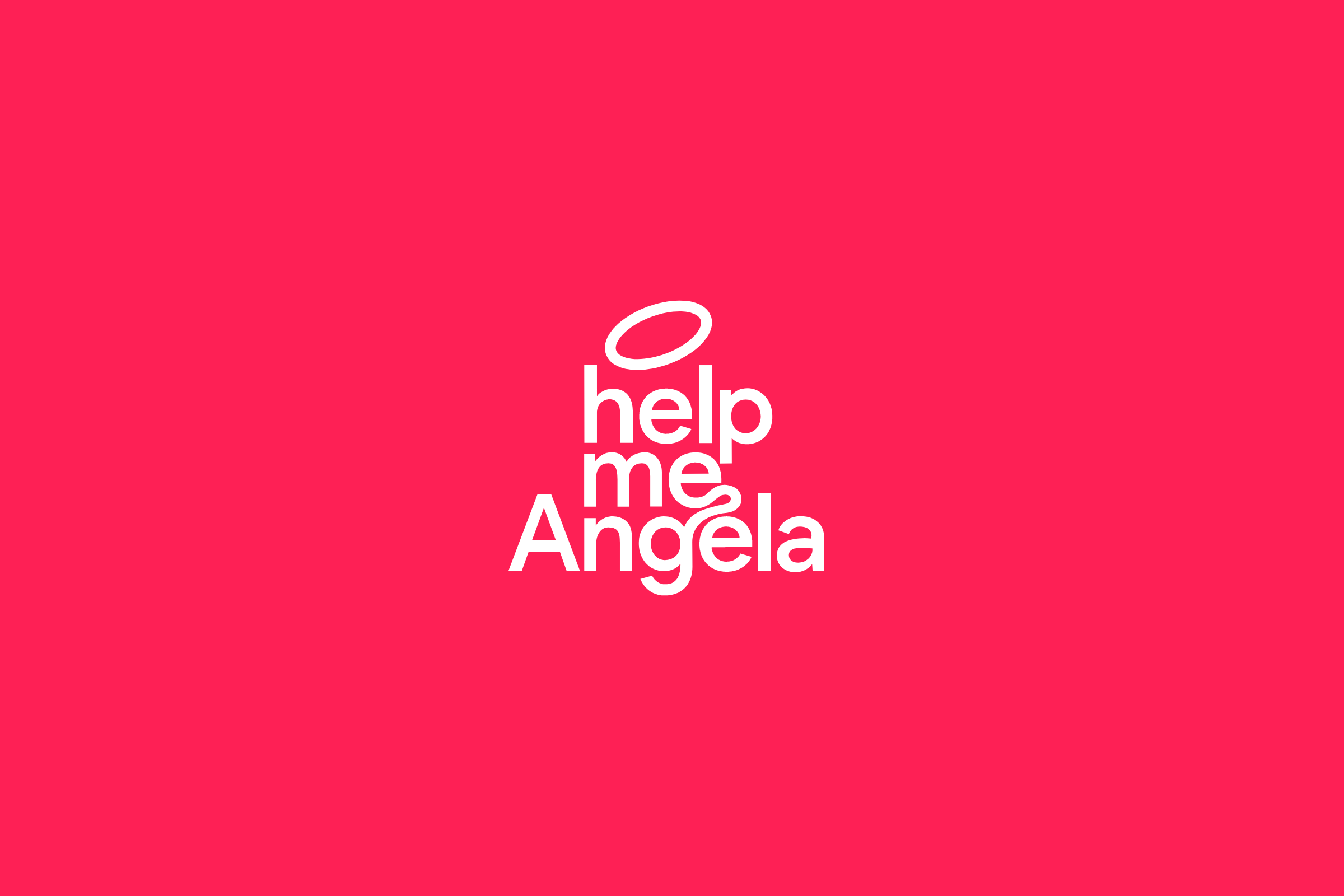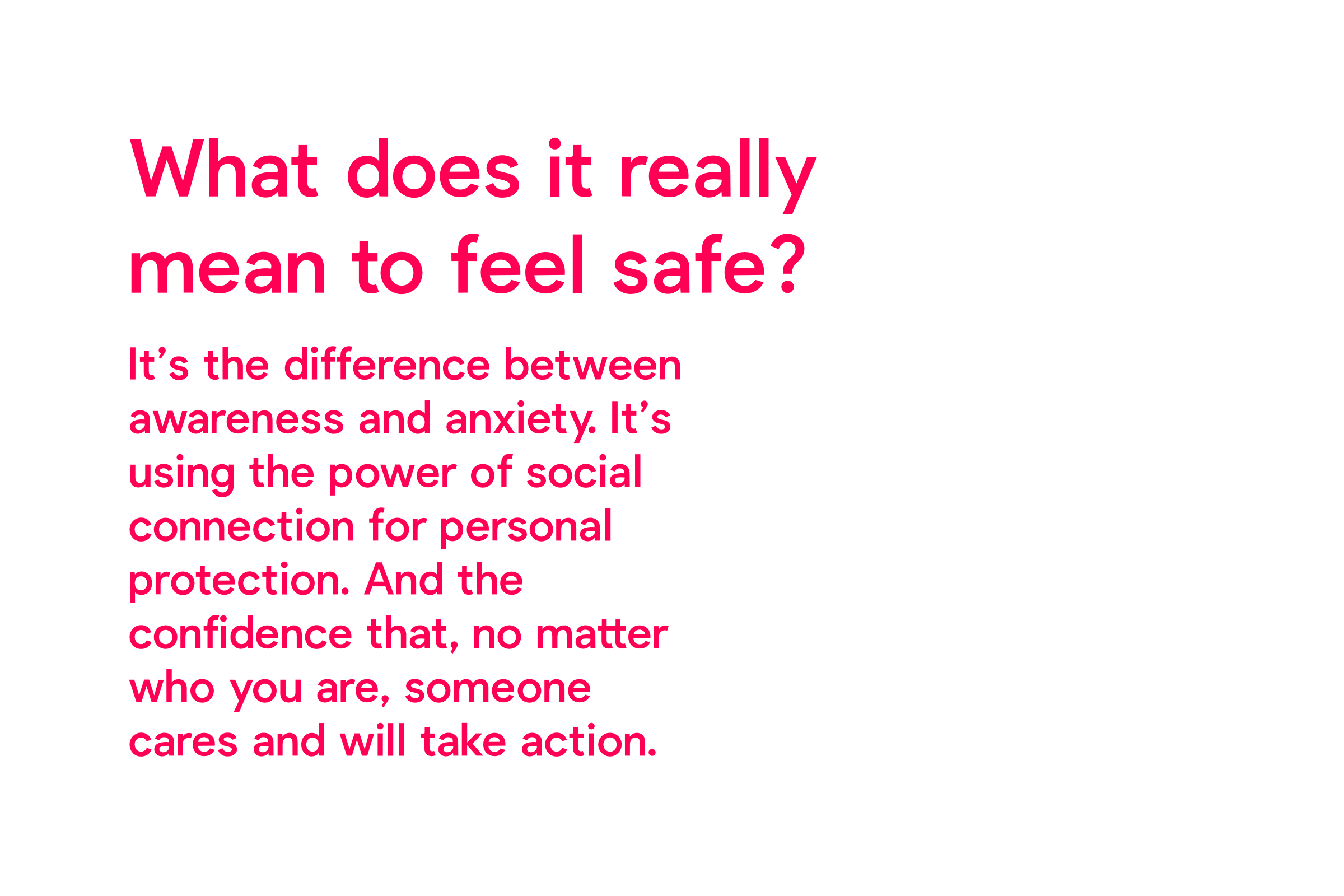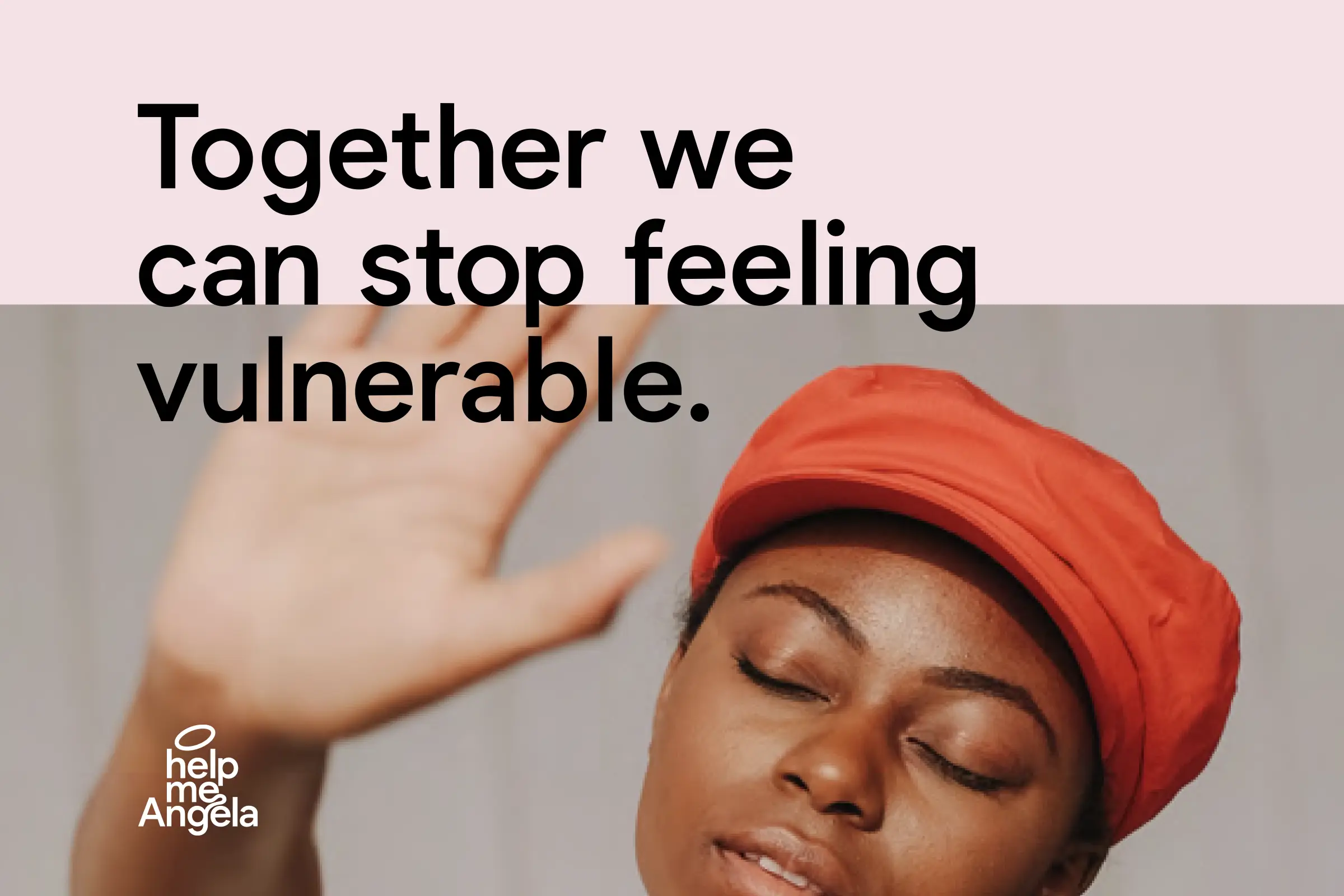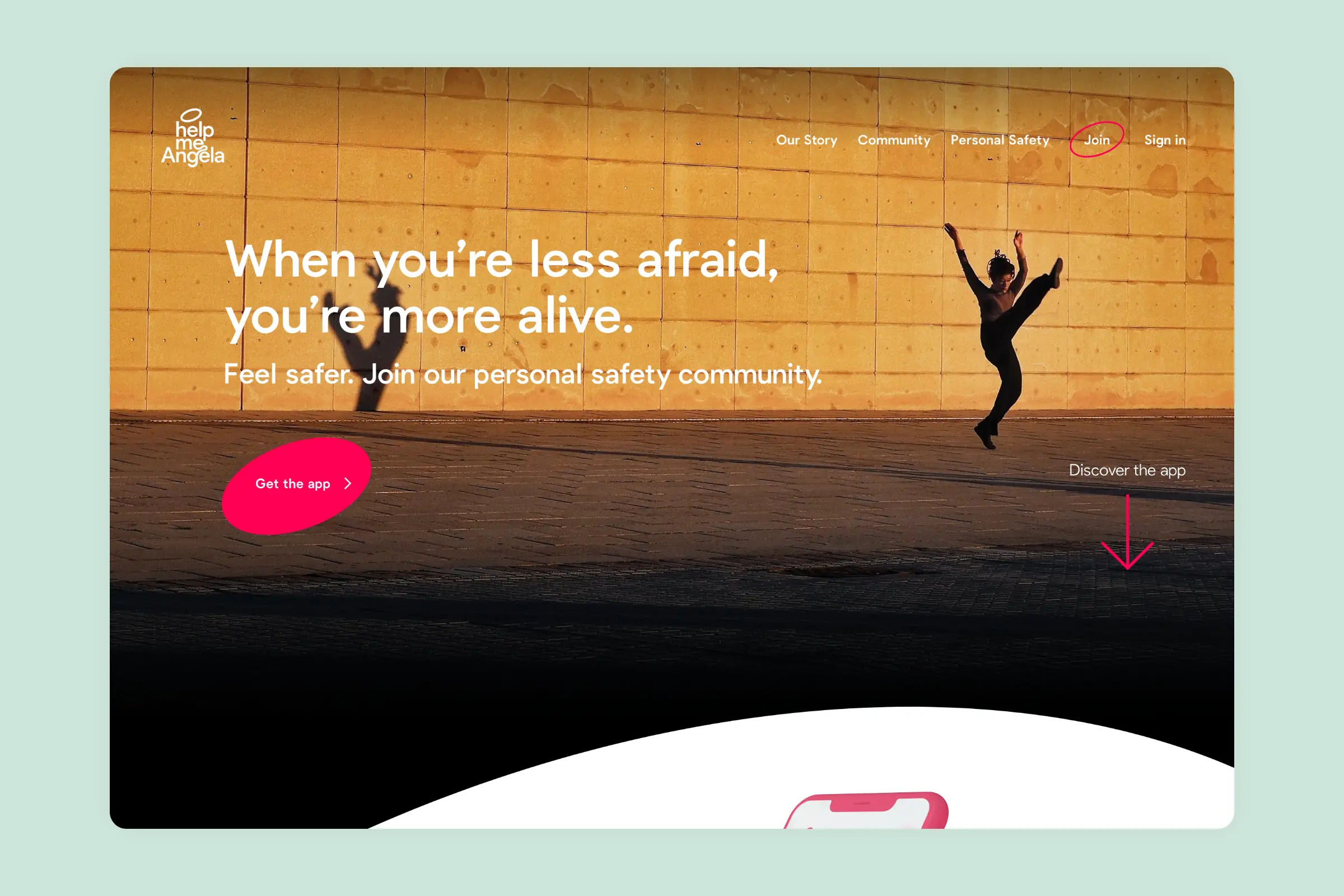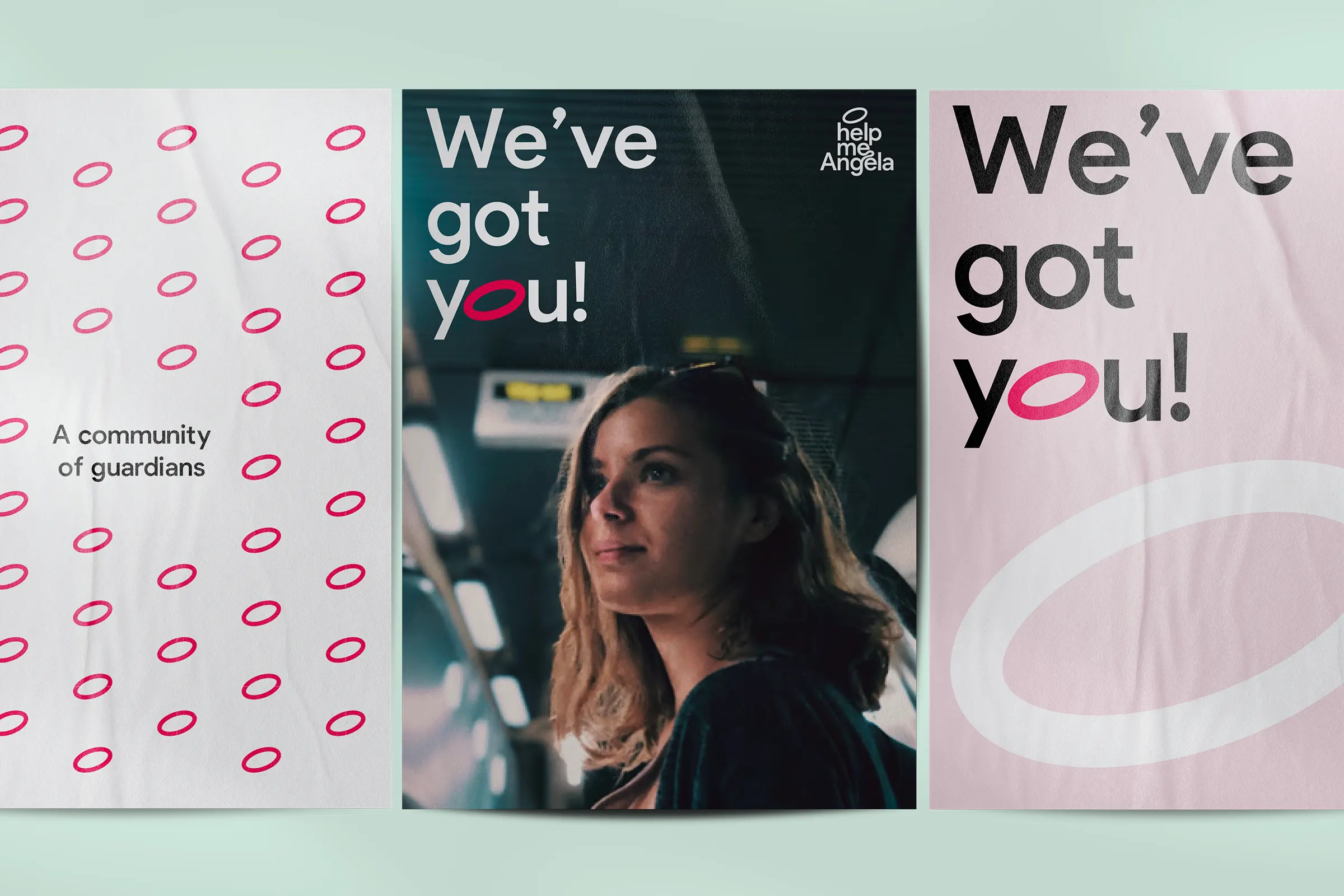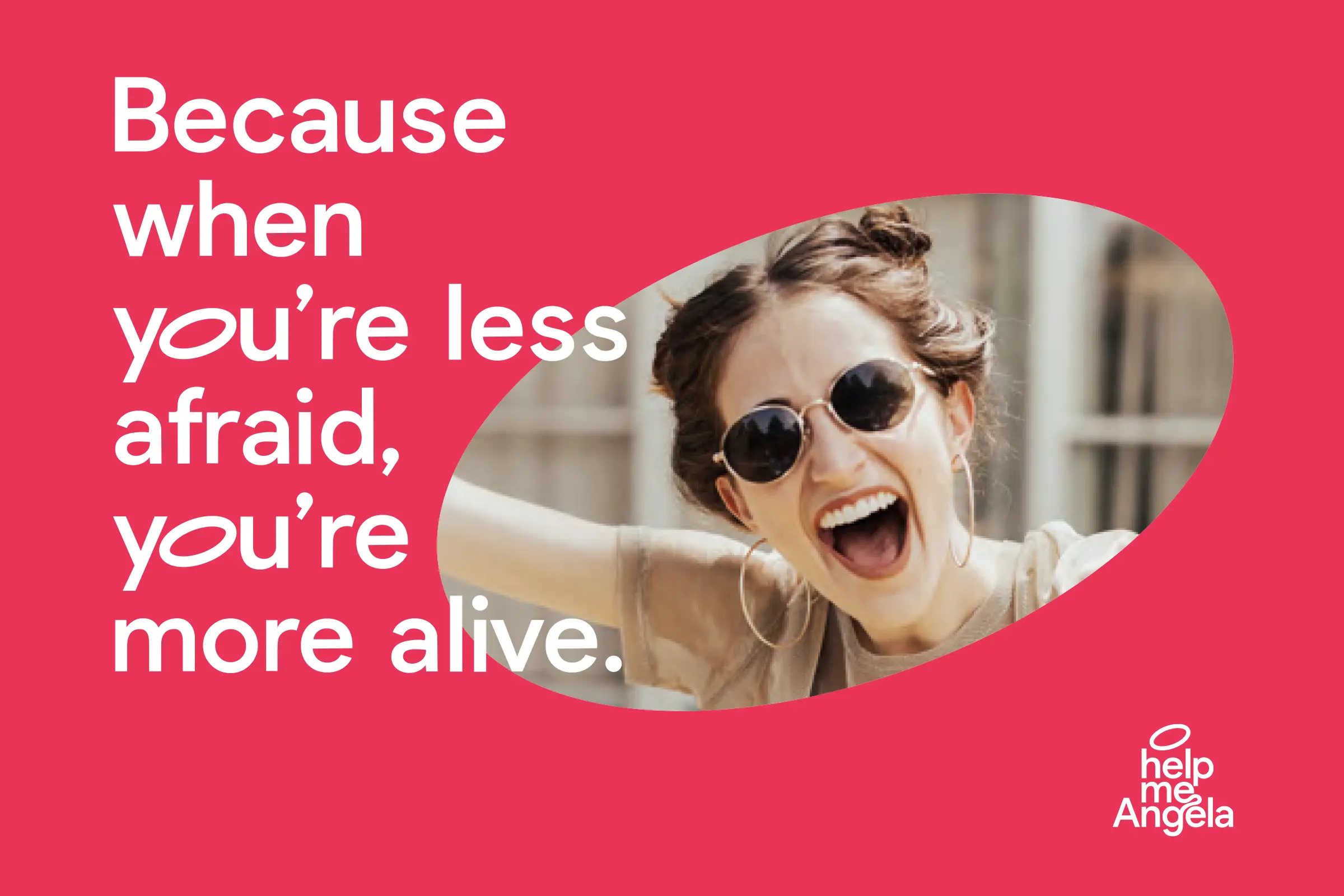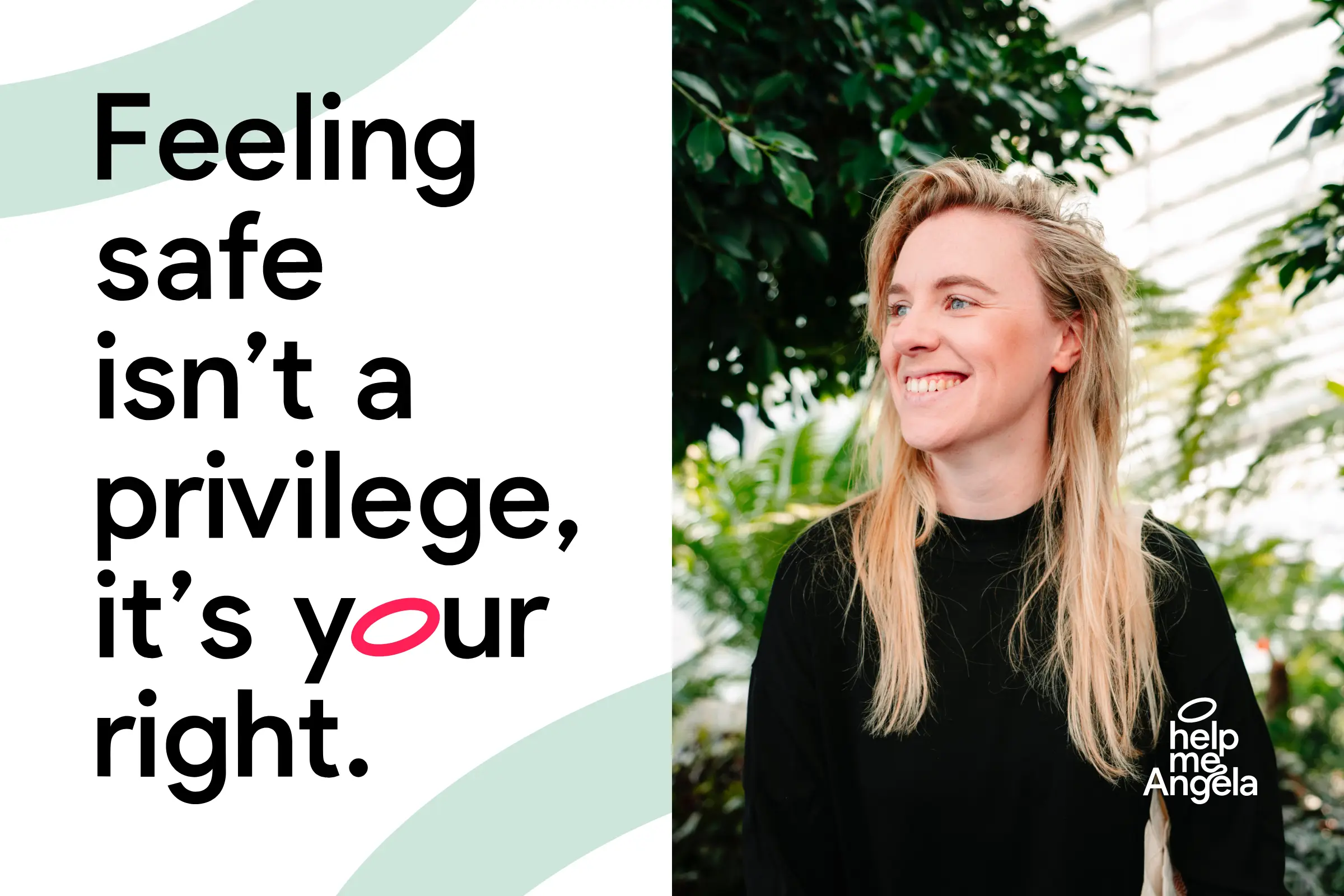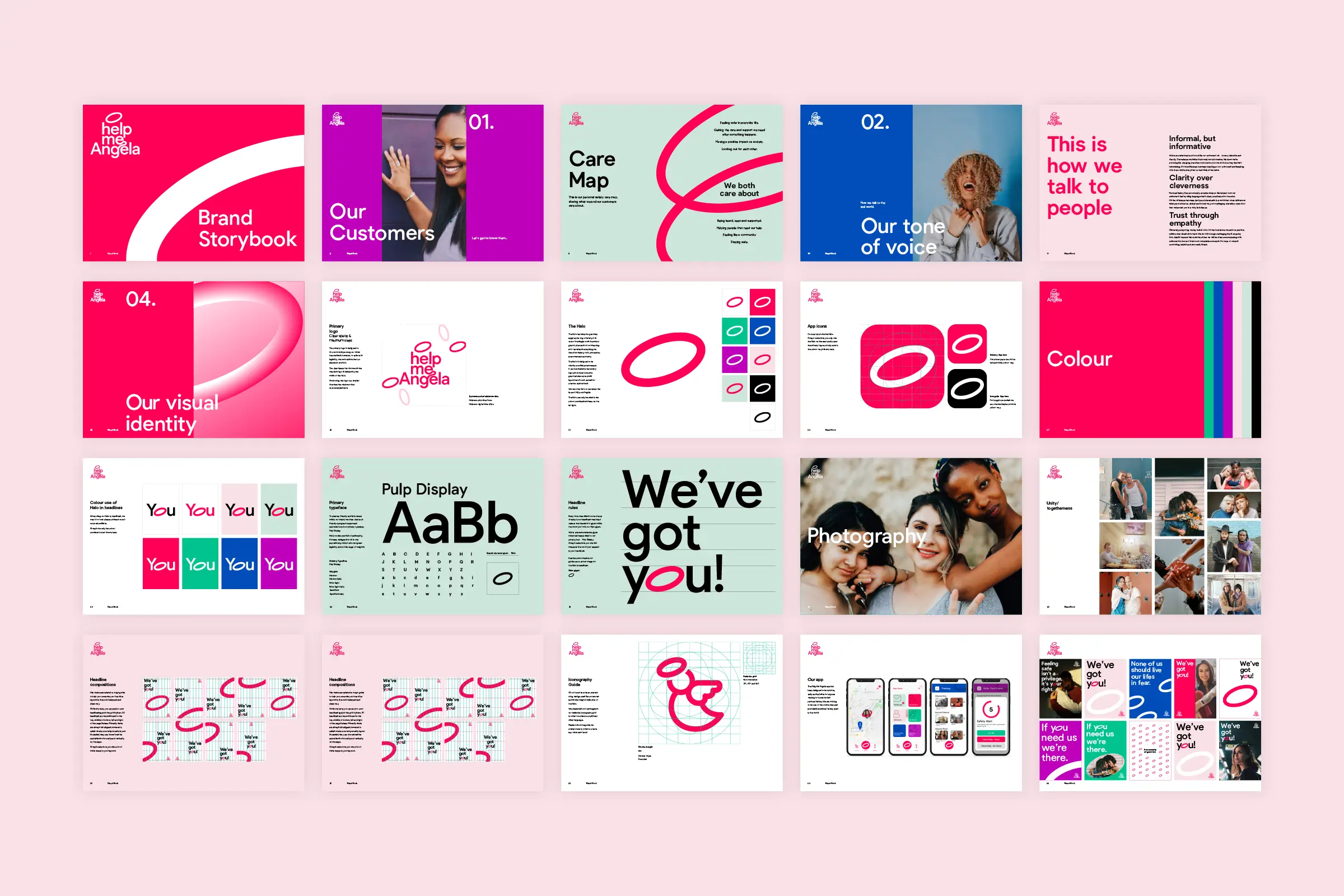The result
Using the insights we gathered and our messaging framework, we developed brand stories that spoke directly to the target audience.
Personal safety is a tricky topic to navigate. Everyone has a story of when they have felt afraid or unsafe. We took on this challenge and created messaging that empowers and supports, rather than creating fear. Tying this in with the visual branding, we were able to create a brand that makes people feel more safe.
We developed visual branding that centred around the halo element. The halo we created represents a guardian angel and a ring of safety. It is one of the single most important graphic elements of the branding as it represents everything they stand for: safety, trust, protection, empowerment and unity. Additionally, we created a unified visual language through iconography that can be understood by people from different backgrounds and cultures.
The primary outputs for this project were brand positioning, brand stories and visual identity, which were all presented in a brand guidelines document. After a successful branding and activation project we went on to support Help me Angela with the creation of their website, brand video and organic social assets. The brand video and social assets resulted in an increase in views and engagement across their social media.
